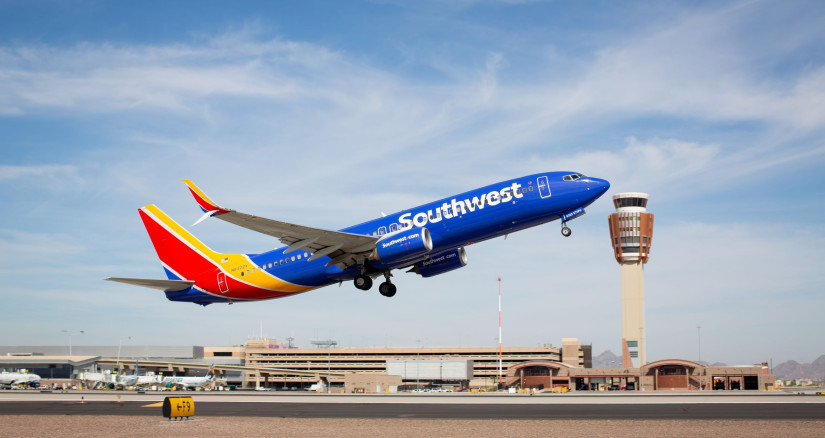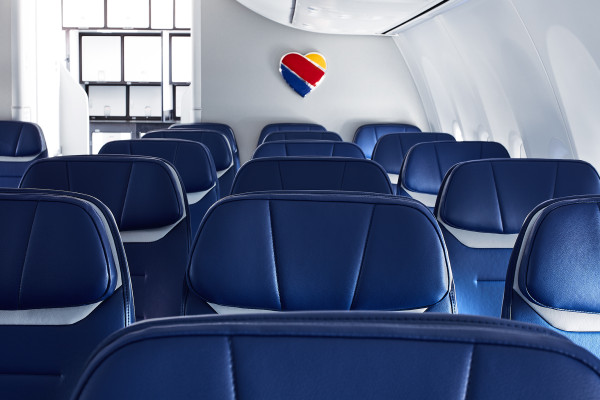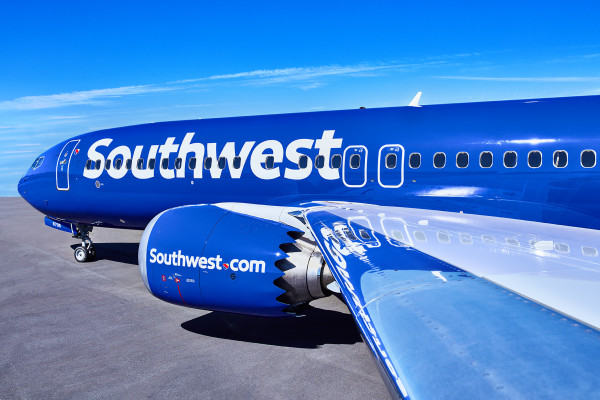
Losing Altitude: When Brands Trade Loyalty for Short-Term Lift
Southwest Airlines is a preeminent success story, with strong brand positioning, integrity, and—let’s face it—popularity, among the growing traveler base. The airline served as a valuable business tool for many of us who traveled weekly, primarily due to low-cost fares, bags flying free (wherein “Two Bags Fly Free™” became a registered trademark on its website), and no change fees when a reschedule required changes in your itinerary. Southwest Airlines was a classic example of Blue Ocean Strategy, chartering new, uncontested markets and studied widely in business schools. But now? Southwest seems to be in a tailspin, descending rapidly into brand finality.
Starting May 28, 2025, Southwest Airlines will begin charging passengers to check bags for the first time in its history. It’s a stunning reversal that shows the low-cost pioneer is willing to part with a coveted customer perk that executives have said “set it apart” from rivals for more than half a century. Why make this sudden change? In hopes of increasing revenue.
This is yet another departure from the brand’s successful business model. Last July, Southwest shocked passengers when it announced it would ditch its open seating model for assigned seats. The reasoning: “We’ve come to realize that we need more revenue to cover our costs,” said Andrew Watterso, Chief Operating Officer at Southwest.
The airline obviously wants a cut of the $5B+ generated from bag fees across the industry in 2024, but here’s where it gets interesting. Southwest predicts it will gain between $1B and $1.5B from charging for checked bags, but expects to lose $1.8B of market share due to this decision.
What’s more—the decision comes after Southwest CEO Bob Jordan stated in September 2024, “Bags will still fly free… It's the third thing customers look for after fare and schedule: Bags fly free, on us. Ninety-seven percent are people who are aware of our policies. So, it's a huge consumer advantage. So, bags will absolutely fly free."

Photo courtesy of Southwest Communications
Thus, they are in essence saying nothing will change. Yet, the change occurs and now they are willing to exchange immediate revenue to satisfy short term gains, while simultaneously risking significant market share, more revenue loss, and destroying the very model that made Southwest, Southwest!
As a fallout, some executives from other airlines see an opportunity. “I think, clearly, there are some customers who [chose Southwest] because of that, and now those customers are up for grabs,” said Glen Hauenstein, President of Delta Air Lines, at an investor conference on March 11, following Southwest’s announcement. Speaking at the same conference, United Airlines CEO Scott Kirby likened Southwest’s baggage policy change to “the slaying of a sacred cow,” and said lower-paying customers will be most affected.
This marks a break with Southwest's 54-year history—one that could undermine customer loyalty to the carrier, according to experts. However, Southwest feels differently. The company released a statement on March 11 that read: "Southwest Airlines remains committed to its core tenets—amazing people who deliver great hospitality to all Southwest customers, a strong network with the most nonstop flights within the U.S., and a loyalty program that gives real value to Rapid Rewards Members.”
And according to Bob Jordan himself, “We are more than the logo on our planes. Our DNA isn't open seating, or even bags fly free. It's a dedication to service.”
As eloquently stated in this article, “But is that the Southwest that people know?”
In short, with all these changes and as an observer, I feel like I’m watching the demise of coveted brand that made its name on delivering on its mission, built its business on listening to their consumer and understanding of the market need for their business model. I believe this decision is an example of what not do to, as it could have far-reaching and damaging effects on the brand. For example, Ryan Green, former Chief Transformation Officer at Southwest who stepped down in February, told analysts Southwest would lose more money from passengers defecting to rivals if it started charging for bags than it would make from added fees, and that the decision would only avalanche brand’s the current situation.
Southwest has the playbook—or in this case the navigation charts—to be successful. I’m referring to a popular book on their story entitled, Nuts! Southwest Airlines' Crazy Recipe for Business and Personal Success. Rather than following the competition, which they appear to be doing, I propose Southwest read and reread this book. Follow the recipe they created and look to the future, because this new chartered course could be the beginning of their end.

Photo courtesy of Southwest Communications
Instead of abandoning what has worked so well for years, champion your inner Blue Ocean Strategy (as highlighted in Blue Ocean Classics by W. Chan Kim and Renee Mauborgne). After all, Southwest once practiced these concepts consistently and constantly:
- The best way to drive profitable growth? Stop competing in overcrowded industries.
- In Red Oceans, companies try to outperform rivals to grab bigger slices of existing demand. In Blue Oceans, companies write and play by their own rules.
- As space gets increasingly crowded, profit and growth prospects naturally shrink and products become more commoditized.
- More intense competition often turns the water bloody (Red Ocean).
Just as these insights could help Southwest, we can keep your brand from making similarly catastrophic mistakes.
At BSM Partners, our Consumer Strategy Practice, led by pet industry veteran Michael Johnson, focuses on understanding the evolving marketplace and changing consumer behaviors. We work with brands to develop market strategies that are connected to consumer needs. Further, our Business Transformation and Leader Development Practice, led by Business Psychologist Dr. Frank Niles, PhD, can help develop and retain the leaders needed to elevate your business. After all, in today’s environment, cultivating high-performing leaders who can inspire and motivate teams is more important than ever.
From business transformation to leadership development, our comprehensive expertise helps brands, retailers, and services of all sizes make competitive comebacks and captivate consumers.
Follow us on LinkedIn for the latest updates on all things happening here at BSM Partners.
About the Author
Eric Rittenhouse works at BSM Partners as Business Development Manager. His areas of expertise include business development, sales and trade marketing while helping brand companies uncover and execute on opportunities to strategically dominate their niche in the consumer product space. He has completed the Blue Ocean Practical Introduction certificate by the Blue Ocean Academy and is Action Selling Master Certified by Action Selling and The Sales Board.
This content is the property of BSM Partners. Reproduction or retransmission or repurposing of any portion of this content is expressly prohibited without the approval of BSM Partners and is governed by the terms and conditions explained here.